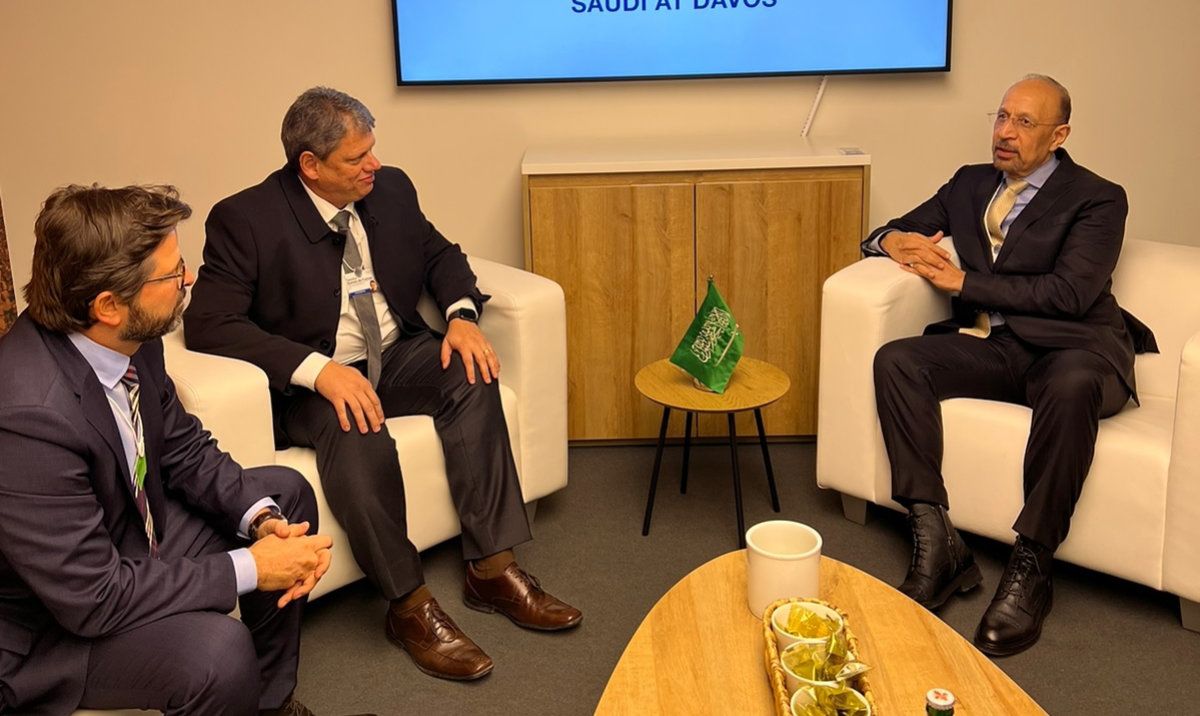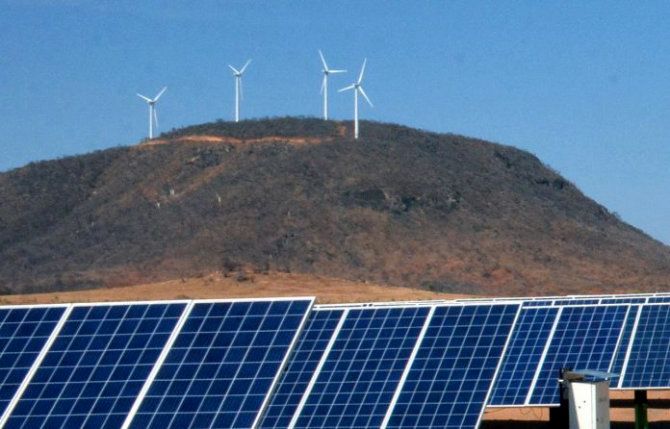
Brazil seeks Arab investors who want to fund infrastructure projects
Various reasons make Brazil a good destination for investments at this time. Not only does it need to urgently develop its logistical systems and energy production infrastructures, but its authorities also learned over time that they need to work with public-private partnerships if they want to have access to the necessary funds and stimulate change.
During the World Economic Forum in January in Davos, Brazil’s Finance Minister Fernando Haddad met with Saudi Investment Minister Khalid Al-Falih and discussed potential partnerships.
“They have investment funds and are paying attention to the calls for partnerships that the Brazilian government, the states and the municipalities will open from now on. That is good because it will make available a significant volume of funds,” Haddad said after the meeting.
Sao Paulo’s Gov. Tarcisio de Freitas also met with Al-Falih and presented to him and to Bandar Alkhorayef, Saudi minister of industry and mineral resources, the state’s asset portfolio.
During the forum, the governor also held talks with Mansoor bin Ebrahim Al-Mahmoud, CEO of the Qatar Investment Authority, and Sultan Ahmed bin Sulayem, chairman and CEO of Emirati multinational logistics company DP World.
 Brazil’s Finance Minister Fernando Haddad discusses potential
partnerships with Saudi Investment Minister Khalid at the World
Economic Forum in January.
Brazil’s Finance Minister Fernando Haddad discusses potential
partnerships with Saudi Investment Minister Khalid at the World
Economic Forum in January.
Guilherme Schmidt, a partner in law firm Schmidt Valois Advogados and an expert in infrastructure projects, told Arab News: “This is an interesting moment for potential investments given that the first years of government usually bring new possibilities.
“And fortunately, Brazil learned from its past errors and will avoid repeating them and driving away investors.”
The country opened the door for private investment in the public sector over the past 30 years, and now there are no political risks for foreign agents in the country, said Armando Castelar, an economist and expert in infrastructure.
“The federal government won’t create any disturbances in that matter. Brazilian society already understands the significance of private investment,” he told Arab News.
President Luiz Inacio Lula da Silva’s Workers’ Party was critical of the privatization policies advanced by former President Fernando Henrique Cardoso (1995-2003).
But during Lula’s first two tenures (2003-2010) and President Dilma Rousseff’s administrations (2011-2016), Brazil’s government largely worked side by side with the private sector.
“We shouldn’t wait for the privatization of state-run companies during Lula’s tenure, but we’ll have several concession agreements. Rousseff, for instance, opened concessions for airports,” Castelar said.
Many partnership opportunities will emerge in renewable energy, and Brazil already has a solid concession model.
Projects are being developed to produce biofuels, bidding rounds for wind power plants will keep being opened, and solar energy will see larger growth.
 Brazil already has a solid concession model in renewable energy.
Brazil already has a solid concession model in renewable energy.
But expectations are higher when it comes to logistical infrastructure. In January, Transport Minister Renan Filho announced that he wanted to raise the participation of railways in Brazil’s logistical system from 20 to 40 percent by 2035.
In April, he said, the government will launch the auction of a new part of the West-East Integration Railway concession in Bahia state.
He also intends to resume the Ferrograo project, a railway that will connect Mato Grosso state, Brazil’s agribusiness epicenter, to Para state, from where shipments can reach the Atlantic via the Tapajos River.
Plans for the project were suspended due to environmental concerns, but Filho hopes that such obstacles can be solved now, and will discuss the issue with Environment Minister Marina Silva.
“The area of transport brings additional challenges given that conceding projects to the private sector is something rather new and, at times, there are no established models to do it in Brazil,” Castelar said.
Ports are another promising field. De Freitas has been pushing the federal government to allow him to privatize the Port of Santos, the most important in the country.
Lula’s Chief of Staff Rui Costa seems willing to debate that possibility, while Minister of Ports and Airports Marcio Franca rejects the idea.
But Franca believes that a number of services in the ports, such as dredging, can be privatized.
“Brazil has dozens of ports that could potentially be modernized with the help of the private sector,” Tamer Mansour, secretary-general of the Arab Brazilian Chamber of Commerce, told Arab News.
“We’ve been facing great difficulties given that the ports of Santos and Paranagua can’t tend anymore to the needs of trade between Brazil and the Middle East.”
The South American country is the largest exporter of halal protein in the world, so partnerships with Gulf nations to improve Brazil’s logistical systems would be only natural, Mansour said, adding that now is a good time for such investments.
Over the past four years, during President Jair Bolsonaro’s administration, Brazil strengthened its ties with the Gulf.
Bolsonaro met with Gulf authorities on different occasions and signed important agreements. Saudi Arabia’s Public Investment Fund, for example, announced $10 billion in investments in different areas in Brazil after Bolsonaro visited the Kingdom in 2019.
“I’m even more optimistic with the current administration,” said Mansour, adding that Lula “was a great partner of Arab nations during his previous administrations. He’ll certainly work to intensify partnerships and investments.”
Brazil’s government is now more prepared to raise its projects’ transparency, presenting them with all the details needed in due time, he said.
“I think Arab nations are ready to invest more in countries like Brazil. There’s more stability now and the right mindset to work on partnerships,” Mansour added.
One of the successful cases of cooperation between Gulf nations and Brazil in infrastructure was the participation of the UAE’s Mubadala Capital in Rio de Janeiro’s subway system.
The fund acquired part of the company in charge of the subway in 2017, and assumed full control in 2021.
“The Arab investor was very professional and did a superb job. Since then, it has been consulted regarding many other endeavors,” Guilherme Schmidt, who worked on that project, told Arab News.
Among the Brazilian states, not only Sao Paulo but also Parana, Rio Grande do Sul and Goias will probably take the lead and launch infrastructure projects to be funded by the private sector, Castelar said. “Those are states that had more progress in structuring public-private partnership models,” he added.
Mansour said some state governors attended Expo 2020 in Dubai and opened conversations with Arab authorities.
“Now they were re-elected, so their administrations’ structure is unaltered — something that may give investors more confidence,” he added.
Mansour said Brazil currently has many local agents that can bring additional reliability for international investors.
“When we talk about megaprojects, local partners are always needed to take part in the investment, directly or indirectly. Brazil has strong financial institutions that have been playing that role,” he added.











